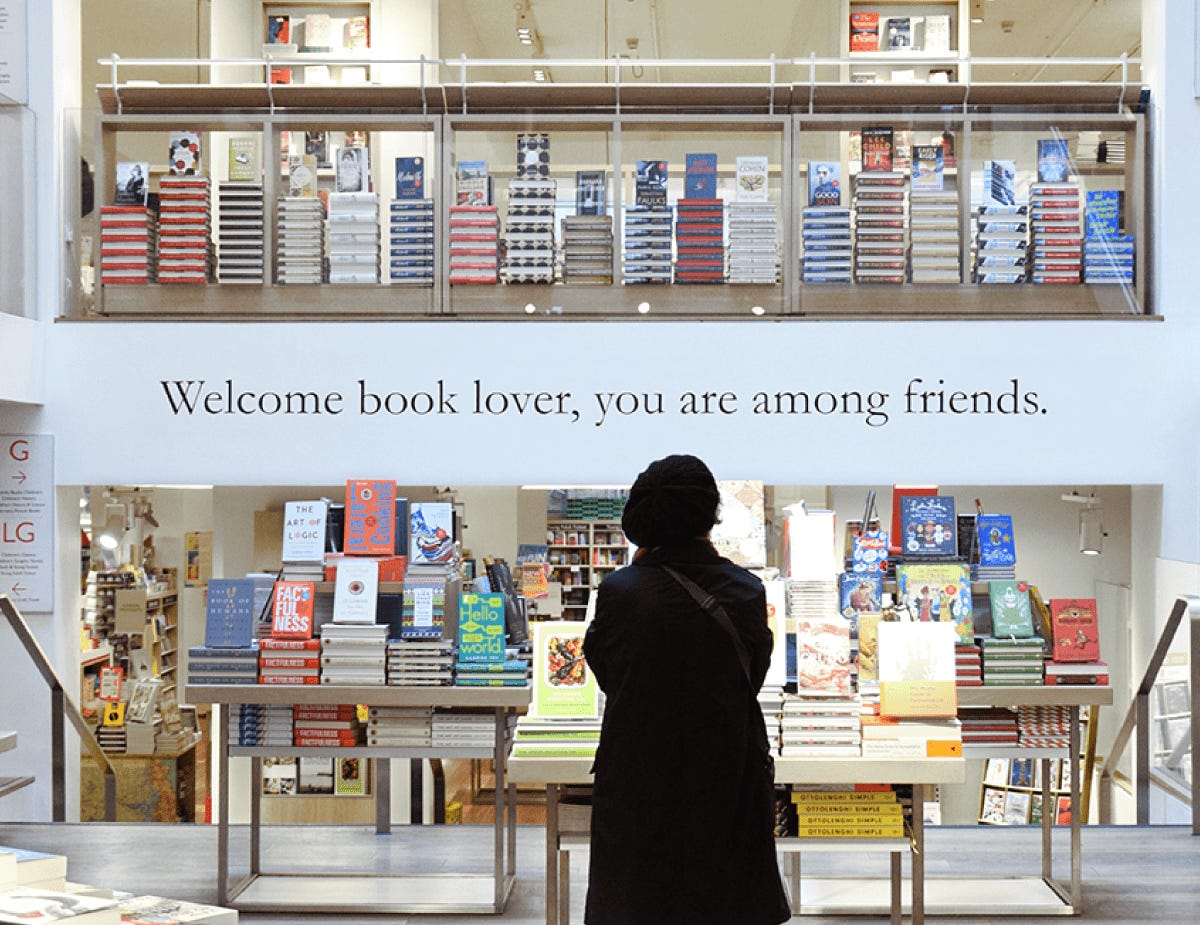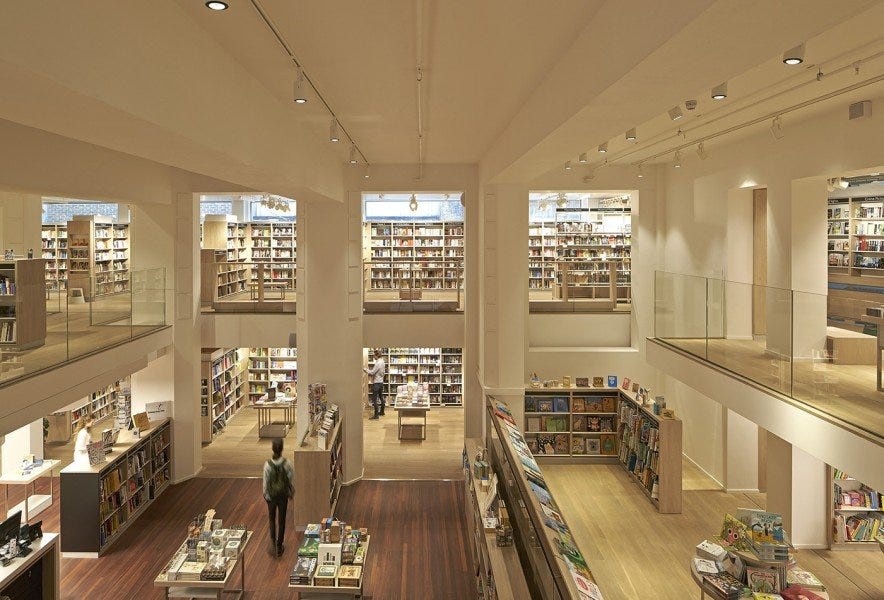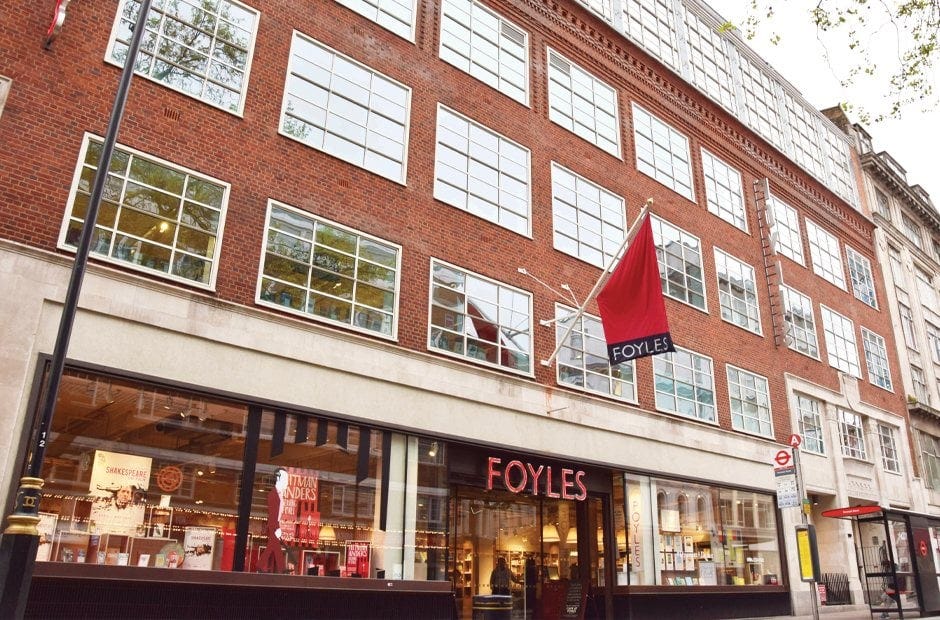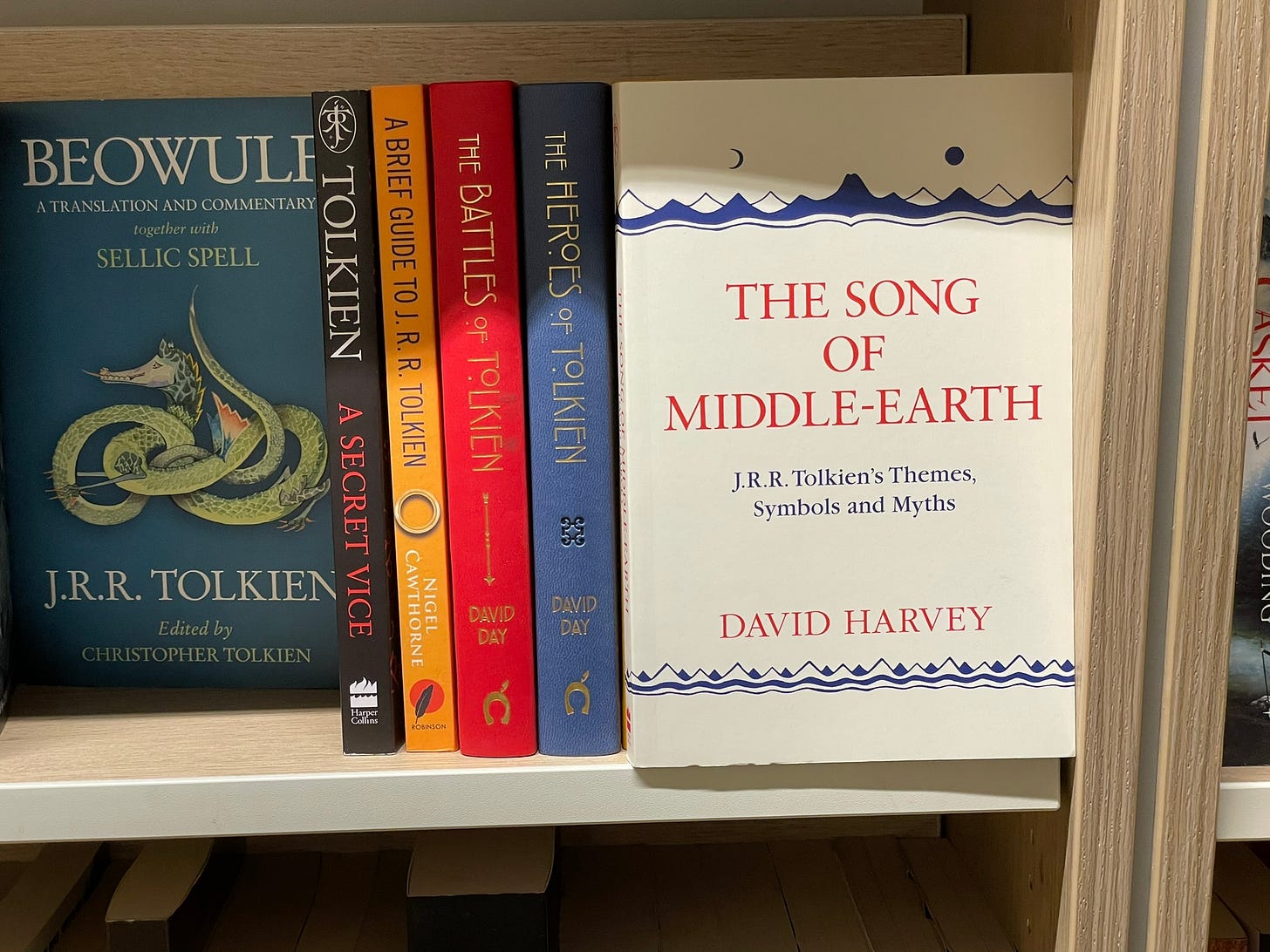Foyles had moved from its location at 119 Charing Cross Road where it was when I first visited in 1981. But even then it was majestic and impressive and in its present location at 107 Charing Cross Road, a short walk from Cambridge Circus and the Palace Theatre, it has a modern style of architecture and a warm and inviting atmosphere.
W & G Foyle Ltd. (usually called simply Foyles) has a chain of seven stores in England but the flagship store is in Charing Cross Road, London.
Foyles was once listed in the Guinness Book of Records as the world's largest bookshop in terms of shelf length, at 30 miles (48 km), and of number of titles on display. It was bought by Waterstones in 2018.
Foyles was famed in the past for its anachronistic, eccentric and sometimes infuriating business practices (one of them involved a number of stops to make a purchase) , so much so that it became a tourist attraction. It has since modernised, and has an online store.
The business was founded in 1903 by brothers William and Gilbert Foyle. After failing entrance exams for the civil service, the brothers offered their redundant textbooks for sale and were inundated by offers. This inspired them to launch a second-hand book business from home. Flushed with success, they opened a small shop on Station Parade in Queen's Road, Peckham, where they painted "With all Faith" in gilt letters above the door.
The first West End shop was opened in 1904, at 16 Cecil Court. (Cecil Court will be the subject of a subsequent article in this series) A year later they hired their first member of staff, who promptly disappeared with the weekly takings. By 1906, their shop was at 135 Charing Cross Road.
By 1910, Foyles had added four suburban branches: at Harringay, Shepherd's Bush, Kilburn and Brixton.
Not long afterward the brothers moved their central London store to 119 Charing Cross Road, the Foyles Building, where it remained until 2014. They acquired adjacent buildings at 1–7 Manette Street including the site of the Old Goldbeater's House. For a time the store included premises at 121–125 Charing Cross Road, on the north side of the junction with Manette Street.
Christina Foyle, daughter of co-founder William, initiated literary luncheons at the Charing Cross Road premises in October 1930 which continue to the present day. In the first 80 years 700 luncheons were held, hosting more than 1,000 authors and 500,000 guests. Speakers and guests of honour at these luncheons have included great literary figures, and celebrities from the world of politics, the media, the military and the theatre. Most British Prime Ministers since the Second World War have attended, as have The Duke of Edinburgh, General Charles de Gaulle, General Władysław Sikorski and the Emperor of Ethiopia Haile Selassie. The store now also holds many evening literary events throughout the year.
Control of the shop passed to Christina in 1945. Under her the shop stagnated, with little investment and poorly paid staff who could be fired on a whim. She also refused to install any modern conveniences such as electronic tills or calculators; nor would she allow orders to be taken by phone. However, the shop excelled in other fields: expensive books ordered from as far off as Germany were sent with a bill without prepayment.
The shop operated a payment system that required customers to queue three times: to collect an invoice for a book, to pay the invoice, then to collect the book, because sales staff were not allowed to handle cash.
The shelving arrangement categorized books by publisher, rather than by topic or author. The newspaper The Independent described the atmosphere as "Imagine Kafka had gone into the book trade." In the 1980s, rival bookshop Dillons placed an advertisement in a bus shelter opposite Foyles reading "Foyled again? Try Dillons".
Christina Foyle and her husband, Ronald Batty, were determined to be free to fire workers at will and were fiercely opposed to worker representation.[
Christina Foyle died in 1999; control then passed to her nephew Christopher, who modernised Foyles' shop and practices.
Foyles' heavily weathered panelling was replaced by a red plastic, grey metal and beech interior. Whereas the shop used to sell second-hand and new books side by side on the same shelves, it now primarily sells books in print, like other large chain bookshops, but with a notably larger range of titles on every subject.
It also now sells second-hand and out-of-print books together with new books in its art, history and archaeology departments. Most of these changes were made between 2003 and 2005. Foyles also now sells electronic books on its website.
In late 2011 Foyles announced that it was selling the lease of its flagship Foyles Building at 111–119 Charing Cross Road. It acquired premises at 107 Charing Cross Road, formerly occupied by the Central St Martins College of Art and Design. The premises were refurbished to designs by London-based architects Lifschutz Davidson Sandilands. The store moved out of the Foyles Building and into the new premises in June 2014.
Foyles is a joy to visit. Multi-floored with a good guide based on subject matter, its range is extensive. My especial interest on my latest visit was in classics and I was not disappointed. The range stretched over a number of shelves and was extensive. I also checked out the science fiction and fantasy section and noted that a number of classic titles were published under the imprint of SF Masterworks, a series of science fiction novel reprints published by UK-based company Orion Publishing Group, a subsidiary of Hachette UK. There are 188 unique titles in the series, 186 of which were printed in a relaunched series. Many of the titles in the selection had been out of print for many years.
Foyles also has a good selection of books by and about Tolkien and for the second time on my bookshop visits I found a familiar title.






Back from UK yesterday, and despite its excellent supply of good bookshops, I am thrilled to be home from a country that, to me, puts up with an infrastructure that is in ruins, is replete with shabbiness disguised as chique, is full of folk with flabby faces and no dress sense: I could go on but, in short, it’s in far sadder condition than ever it was in my previous experiences. And as for the food - UGH!
Yes, my comments are off piste, but sharing them gives me great psychological relief!
What a treasure trove, and very pleasing to find your book.